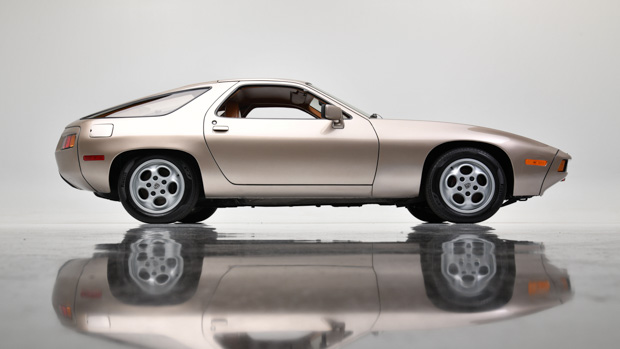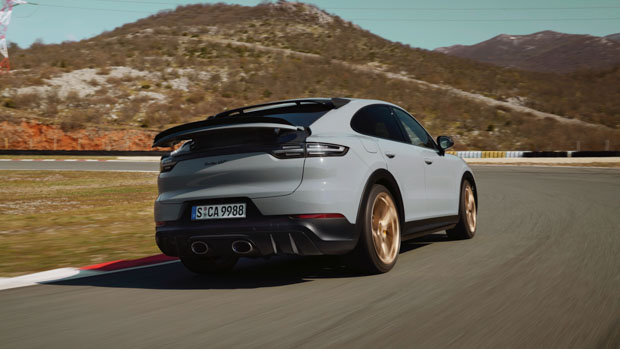-
Car Reviews
- All reviews
- Midsize SUVs
- Small cars
- Utes
- Small SUVs
- Large SUVs
- Large cars
- Sports SUVs
- Sports cars
- Vans
Latest reviews
- Car News
-
Car Comparisons
Latest comparisons
- Chasing Deals
Valentine’s Day this year was not just a day for lovers – it was also an opportunity for Porsche to send a love letter to its V8 engine
It’s been 45 years since the debut of the V8 engine in the Porsche story line. On February 14th 2022, the brand celebrated the occasion with a special video aimed at all of the V8-engined cars from the brand’s past.
Although most would think Porsche is known for its flat-six engines only, the V8 holds a special place in the brand’s history and helped launch cars such as the 928 in the late 70s, the 2013 918 hypercar and the Cayenne SUV that debuted in 2003.
Take a walk through Porsche’s V8 history with Chasing Cars as we take a look at each of these models and what makes their V8 engine so special.
The first Porsche eight-cylinder engine was not a V8, but in fact a flat layout engine which was air-cooled in typical Porsche fashion in its 1962 ‘804’ Formula 1 car.
Things soon changed, though, and soon enough Porsche had moved to a 90-degree, water-cooled V8 engine which went straight into a brand new car, the Porsche 928 coupe.
Made famous particularly in the movie Risky Business featuring Tom Cruise, the 928 had the largest displacement of any Porsche at the time of its initial release in 1978.
The first engines featured single-overhead cams and were capable of maximum outputs of 178kW at 5500rpm. In 1979, power was bumped to 223kW (or 300 horsepower) along with an increase in displacement to 4.7-litres.
Some time later, in 1986, this engine would get a serious overhaul, transitioning to four valves per cylinder and double overhead cams. Displacement increased once again to 5.0-litres. Power peaked at 257kW for the final GTS edition of the Porsche 928 until production ended in 1995.
A few years went by when Porsche did not sell a V8 model. But things were about to change.
The introduction of the brand’s first SUV brought back the 90-degree V8 engine, this time in a smaller displacement of 4.5-litres. Power stayed at a reasonable 254kW and 420Nm.
Porsche reworked the engine and bolted on a pair of turbochargers to make a serious performance machine that produced 331kW.
At the time, the Cayenne Turbo was the second most powerful car produced by Porsche, the first being the Carrera GT with its 5.7-litre naturally-aspirated V10 engine.
Direct injection was introduced for the V8 in 2007, along with a slight increase in displacement to 4.8-litres.
The Porsche Panamera was introduced in 2009 but did not gain a brand new generation of the same V8. Instead, the 4.8-litre naturally-aspirated engine was tuned to produce 298kW of power. The Cayenne received this same update.
Power went as high as 410kW for the second generation V8 engine.
The Porsche 918 Spyder debuted with V8 architecture taken from the RS Spyder Le Mans race car.
At 4.6-litres of displacement, the naturally-aspirated MR6 V8 engine was paired to two electric motors to produce a total system output of 652kW and 1280Nm. The Porsche 918 Spyder competed against the Ferrari LaFerrari and McLaren P1 as the first group of hybrid hypercars produced and were some of the most powerful vehicles in the world at the time.
The current generation of Porsche V8 engine is available in both Cayenne and Panamera models, both of which are available in Australia.
The most powerful version of the engine is found in the Panamera Turbo S E-Hybrid model which produces a staggering 515kW of power and 870Nm of torque.
The Cayenne Turbo S E-Hybrid makes slightly less power with 500kW but pushes out more torque at 900Nm.
Latest news
About Chasing cars
Chasing Cars reviews are 100% independent.
Because we are powered by Budget Direct Insurance, we don’t receive advertising or sales revenue from car manufacturers.
We’re truly independent – giving you Australia’s best car reviews.




